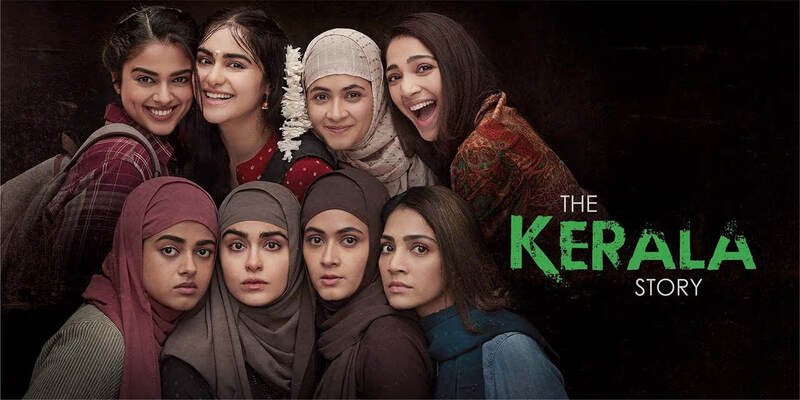The film “The Kerala Story” has sparked controversy for claiming to be based on the true story of 32,000 young women from Kerala who were held captive in ISIS camps after being converted to Islam. However, the figure was later reduced to just 3, revealing the filmmakers’ exaggeration and misrepresentation. The film itself is a poorly-made, poorly-acted rant that simplistically portrays Kerala as in danger because Hindu and Christian’s girls are being radicalized by evil Muslim men. It fails to interrogate the social complexities of Kerala and merely creates paper-thin characters to perpetuate hate speech.
The film fails to explore how educated young women in Kerala could be enamored by an ideology so different from what they grew up believing. Instead, it propagates incendiary lines such as “all of Kerala has been placed on a time bomb” and “in the next twenty years, Kerala will become an Islamic state.” The film portrays Muslim figures as dark and intimidating, with “love jihad” as their weapon of choice.
While it is true that real-life women from Kerala and other parts of the world have experienced the horrors of being brutalized by the Taliban, claiming that it is the definitive “Kerala Story” and that 32,000 women were affected is patently false.
After being bombarded for over two hours with bad-Muslims-who-are-completing-the-job-Aurangzeb-left-hanging and jibes at “Communists,” viewers may wonder why the filmmakers didn’t learn from the master of propaganda, Leni Riefenstahl.
A film should shine a light on different aspects of an issue, creating space for reflection and conversation. However, “The Kerala Story” does the opposite and fails to provide any food for thought. Ultimately, as viewers, we must decide what we want from a film.
